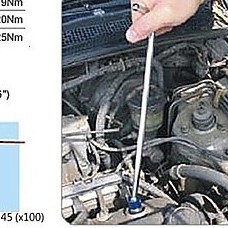Search the Community
Showing results for tags 'dialect'.
-
"It feels good to be able to speak Hainanese again." A lady had told us when she paused in her tracks to make conversation. I was with my grandma – whose only means of communicating with others is via the Hainanese dialect – and parents. We were over at my cousin's new place and explaining to my grandma some of the features of the compound. When the lady heard us, she broke out in Hainanese to say hello. "It's very rare to find people who can speak Hainanese these days so when I overheard you all talking, I couldn't help myself," she said, her face I remember was one of genuine joy. At that moment, I felt a connection that I've never had. It strangely felt as though I got reunited with a distant relative. And our three-generation family continued talking to the friendly neighbour whom we had just met, for another good five minutes. Hainanese is one of five major Chinese dialect sub-groups in Singapore; the rest being Hokkien, Teochew, Cantonese, and Hakka. I grew up in a family where my maternal and paternal relatives are all Hainanese. I'm lucky that way because rather than having to pick up two dialects, I only had one to work with. I assimilated to the dialect fairly naturally as a result, instead of having to learn it. But this isn't about claiming bragging rights. If anything, it's more an observation of the decline in the literacy of Chinese dialects that I wished could be reversed. I lament the loss of a piece of our unique culture and that extra thread that connects us with people. What do the figures say? Our Census of Population 2020 reported a mere 8.7% of our resident population who use Chinese dialects as their most frequently spoken language at home. This is down from 14.3% in 2010. These figures, I feel, are an accurate reflection of reality. Even as I look around me, many of my peers can comprehend but aren't able to speak their family dialects. This isn't all that surprising since we barely have to use dialects to get on with our daily lives. It's a natural outcome yet a pity. The relevance of dialects will continue to dwindle as generations pass, especially in light of higher literacy levels and as English increasingly dominates as the main mode of communication in Singaporean homes. And this brings us back to the heart of the matter. Dialects, just like any language, are a means for us to get through to other people. For instance, for me, Hainanese is how I connect with my grandma. She is my reason for why I still hold on dearly to the dialect. But the lady with whom we had crossed paths was a timely reminder for me. There are still communities of people who, though may not communicate mainly via a Chinese dialect, have fond memories associated with speaking it. These could be from the carefree days in their childhood, or from a time when they connected with a fellow dialect-speaker. I know for one that I will continue to embrace my Hainanese-ness for as long as there's someone out there who speaks the dialect. This Easter holiday, as we take time to rest and celebrate, let's also not forget to find reasons, and to resuscitate the connections that tie us to people. – Denise Photos from: Singstat, Klook
- 1 comment
-
- 1
-

-
- chinese dialect
- dialect
-
(and 3 more)
Tagged with:
-
seein the "foreign language" thread made me want to question : how many chinese out there can speak your own dialect ? seems that the younger generation now can't even speak/understand there on ancestral dialect !!??
-
should we bring back the concept of dialect surnames/names? ever since the early eighties, the names of Singaporean Chinese had gone through the hanyu pinyin revolution i remember it caused a confusion in the NS (in later years) because many had the same names now, it also caused confusion between Singaporean Chinese and China Chinese i like dialect names... it's an unique part of our local culture (like Taiwan and HK) and we shouldn't discard it will you give your children dialect names, apart from English names? or will you give them hanyu pinyin names? or half half (dialect surname, hanyu pinyin name)?
-
Very sad to know that a lot of Chinese youngsters nowadays don't even know how to speak dialect anymore. Dialect classes for NUS volunteers http://news.omy.sg/News/Local%2BNews/Story...035-333138.html COMMUNICATION can be a challenge, especially when dealing with the elderly. For National University of Singapore (NUS) economics undergraduate Genevieve Ng, a volunteer with NUS Community Service Club, not understanding Cantonese proved to be the biggest challenge when it came to helping a particular elderly woman. The woman, who was in her 70s, could not understand a word Miss Ng, who speaks Mandarin and English, said. The 23-year-old was tasked along with other volunteers to help clean the woman's one- room Jalan Bukit Merah flat three years ago. "Without a translator, my friends and I were lost," recalled Miss Ng. "We weren't sure what to touch and what not to touch." Likewise, the woman was unable to direct them, and often lost patience with them. Thus, Miss Ng is glad that the Community Service Club has introduced dialect lessons for volunteers, and she attended its first Cantonese workshop last Monday. The NUS club has been around for a decade and has some 300 student members. The club's dialect classes, which began last year with the introduction of Hokkien classes, are taught by student volunteers. Last Monday, the student lounge at NUS was a hive of activity, with 20 students congregating around trainer and fellow club member So Man Shan, 21, during the two-hour workshop. Miss So, a geography major, came to Singapore from Hong Kong at the age of two. She taught her fellow students common phrases and simple greetings, and also how to ask about aches and pains, in Cantonese. The dialect lessons are the brainchild of club member Tan Hong Yu, 25, a chemical- and biomolecular-engineering undergraduate who has been an active volunteer at various organisations for nine years. He noticed the language barrier between elderly beneficiaries and young NUS volunteers during home visits to the terminally ill. Mr Tan himself started brushing up on his Hokkien at the age of 16, so that he could better help the needy. He said: "When we speak their language, the elderly tend to be more comfortable with sharing their fears." Miss Ng said: "No matter how broken the dialect we speak may be, the elderly feel happy when we can communicate with them."
-
Talking about getai, why we only have chinese and mandarin songs? why cant we have malay and tamil singers too? Dont tell me hungry ghost festival only have chinese ghosts and no other ghosts of other races? by having multi-race singers...our getais can be more lively and the festival to be better appreciated by everyone?
-
I heard a local Chinese argue about which dialect is genetically more vicious through evolution. One says Cantonese and the other Fujianease or hoken I think.
-
Hey bros..just wondering..why is dialect and dialect songs not allowed on radio station but korean ,jap , spanish songs are allowed? Was it about the speak chinese campaign or smth like tat? If so korean or jap song doesnt affect the campaign? Or is it coz its more high class? Coz i remember some songs maybe is 80-90% chinese but abit of hokkien only..oso cannt play out liao..but some english song machiam 80% spanish or wat but abit english only but is being broadcasted..
-
what is wrong with screening tvb dramas in cantonese? how about allowing tawainese dramas without dubbing in chinese? i do not think this in anyway will affect the standards of chinese. its time MDA change their thinking and perspective
-
Just wonder how many still stick with the format of using dialect name for your kids whom your parents gave you when you were young like Tan Lee Hoon, Yeo Kok Choon etc. I know some of my friend still use like Tan Guoping, Yeo Huimin etc. Or... you totally change your Tan to Chen or Lim to Lin for your kid? For me, I am still using the dialect format. Reason is I wanna people to differentiate my kids from the FT or PR.
-
A colleague once commented only one of his nephews is able to converse fluently in english, mandarin and hokkien; this boy has been living with grandparents since birth. The rest speaks only speaks english and simply goes "er er ah ah" when grandma speaks to them. Will dialect be lost with the future generations? --------------------------------------------- Article: http://www.channelnewsasia.com/stories/sin.../415920/1/.html Chinese S'poreans should focus on learning Mandarin well, says MM Lee By Pearl Forss, Channel NewsAsia | Posted: 17 March 2009 2114 hrs SINGAPORE: The trend of Chinese dialects dying out in Singapore is irreversible, said Minister Mentor Lee Kuan Yew, who urged Singaporeans to focus more energy on learning Mandarin instead. Speaking at the 30th anniversary of the Speak Mandarin Campaign on Tuesday, Mr Lee said the key challenge is no longer about Mandarin versus dialects, but about getting more Chinese Singaporeans to speak Mandarin to their children. Mastering both English and Mandarin is not an easy task for most children, including the minister mentor's grandchildren. He said among the seven of them, only one prefers to use Mandarin, whereas the rest often answer in English when he asks them questions in Mandarin. Mr Lee urged parents to help their children master the language at home. "If both (parents) can speak Mandarin, don't speak to your child in English, or one in English and one in Chinese. Speak to them in Mandarin, leave their English alone
- 54 replies
-
- Discouraging
- youth
-
(and 2 more)
Tagged with:
-
Dialects spark new bonding http://www.channelnewsasia.com/stories/sin.../342685/1/.html SINGAPORE : For years, English and officially-termed "Mother Tongues" ruled the classrooms, while dialects
-
For those who don't speak or understand Teochew dialect - sorry no way you can enjoy the song http://www.youtube.com/watch?v=uFDtxj-R-Qg








